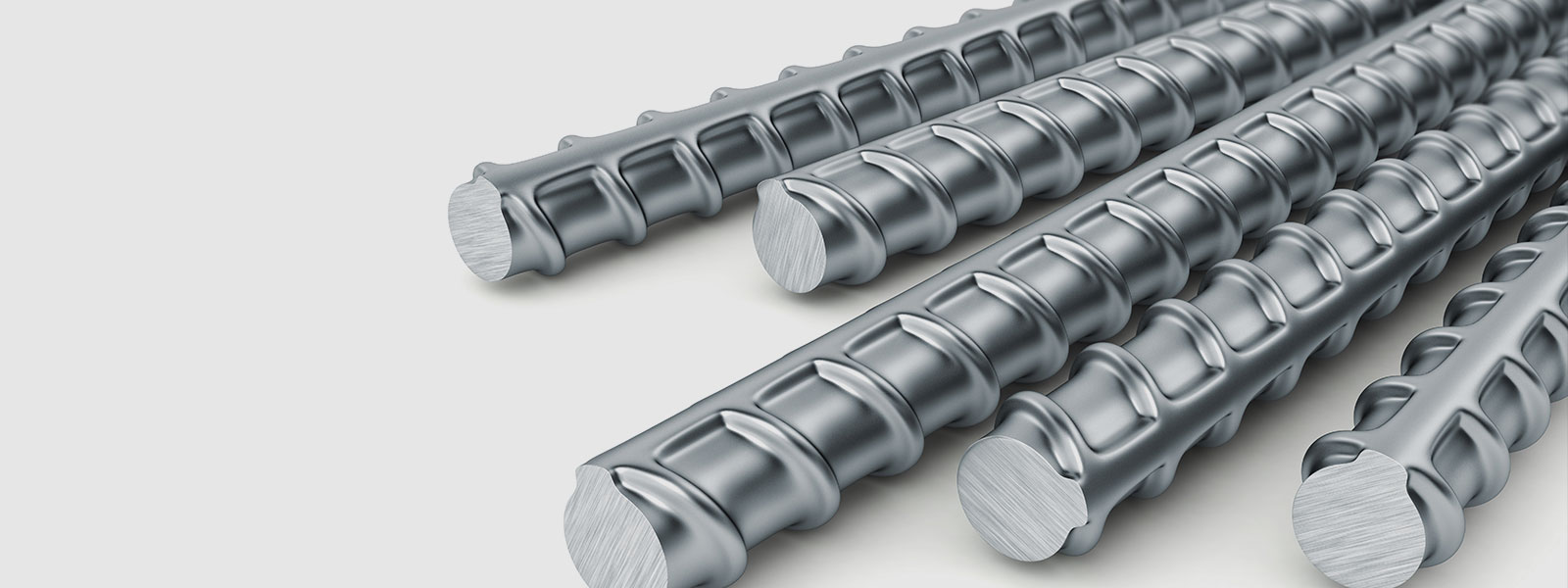Home » Business registrations in Hyderabad » Required Registrations for Steel and Iron Business in Hyderabad
Required Registrations for Iron and Steel Business in Hyderabad

Starting an iron and steel business in Hyderabad can be a lucrative venture, given the city’s booming construction, manufacturing, and infrastructure development. However, before you can operate legally, there are several required registrations for iron and steel business in Hyderabad that every entrepreneur must obtain.
From business incorporation to pollution control and tax compliance, understanding each registration requirement ensures your business runs smoothly and avoids legal hurdles. This guide explains every essential registration, its importance, and how to apply step-by-step — tailored specifically for businesses in Hyderabad, Telangana.
Why Hyderabad is Ideal for the Iron & Steel Industry
Hyderabad’s rapid urbanization and industrial growth have made it one of South India’s largest hubs for the iron and steel sector. Whether you’re running a steel trading firm, iron fabrication unit, or TMT bar dealership, the city offers strong opportunities.
Key reasons include:
Proximity to industrial zones like Jeedimetla, Patancheru, and Cherlapally.
Excellent connectivity to ports and logistics routes.
Availability of raw materials and skilled labor.
Supportive policies under Telangana State Industrial Project Approval and Self-Certification System (TS-iPASS).
However, before you begin operations, compliance with statutory registrations is mandatory.
Step-by-Step Overview of Required Registrations
To legally start and operate an iron and steel business in Hyderabad, you need multiple registrations across business setup, tax compliance, environmental, and industry-specific categories. Below is a detailed breakdown.
1. Business Registration (Company Formation)
Your first step is to legally register your business entity. Depending on your business scale and goals, you can choose among several types.
Types of Business Entities:
Sole Proprietorship – Simple structure for small traders.
Partnership Firm – Suitable for two or more partners.
Limited Liability Partnership (LLP) – Provides liability protection.
Private Limited Company – Ideal for growing businesses and suppliers.
One Person Company (OPC) – Best for solo entrepreneurs with limited liability.
Documents Required:
PAN & Aadhaar of owner/partners/directors.
Address proof of business premises.
Digital Signature Certificate (DSC).
Memorandum and Articles of Association (for companies).
Where to Register:
Registrar of Companies (ROC), Ministry of Corporate Affairs (MCA).
Pro Tip:
For professional support, consult business registration experts like Invention Tax Solutions in Hyderabad for a smooth and compliant registration process.
2. GST Registration
Every iron and steel business involved in sales, trading, or manufacturing must register under Goods and Services Tax (GST).
Why It’s Mandatory:
Required if turnover exceeds ₹40 lakhs (₹20 lakhs for service providers).
Enables you to collect and remit GST on sales.
Allows input tax credit for raw material purchases.
Essential for B2B and interstate transactions.
Documents Needed:
PAN, Aadhaar, and proof of business address.
Incorporation certificate or trade license.
Bank account details.
Where to Apply:
GST Portal – www.gst.gov.in
Pro Tip:
Apply for GST early, as most steel buyers and contractors deal only with registered vendors.
3. Trade License from GHMC or Local Authority
Every iron and steel business in Hyderabad must obtain a Trade License from the Greater Hyderabad Municipal Corporation (GHMC) or local municipal body.
Purpose:
It ensures your premises meet safety, hygiene, and zoning requirements.
Documents Required:
PAN card and Aadhaar.
Lease deed or property documents.
Fire safety NOC (if applicable).
Consent from Telangana Pollution Control Board (if manufacturing).
Validity: Usually 1 year, renewable annually.
Where to Apply:
GHMC’s official portal – https://ghmc.gov.in
4. Udyam (MSME) Registration
If your iron and steel unit qualifies as a Micro, Small, or Medium Enterprise, registering under Udyam (MSME) provides major benefits.
Advantages:
Easy access to government loans and subsidies.
Preference in government tenders.
Reduced electricity tariffs and tax rebates.
Protection under delayed payment laws.
Where to Apply:
https://udyamregistration.gov.in
5. Pollution Control Board Registration (TSPCB)
Since iron and steel businesses may generate fumes, dust, and waste, you must obtain clearance from the Telangana State Pollution Control Board (TSPCB).
Required for:
Steel fabrication units.
Foundries or rolling mills.
Iron reprocessing or melting plants.
Key Steps:
Apply for Consent for Establishment (CFE) before setup.
After installation, apply for Consent for Operation (CFO).
Comply with environmental monitoring requirements.
Documents Needed:
Site layout plan.
Details of machinery and emissions.
Waste disposal plan.
Land documents and factory license copy.
Penalty: Non-compliance can lead to closure or heavy fines.
6. Factory License (If Manufacturing)
If you operate a manufacturing or processing unit with 10 or more workers, you must register under the Factories Act, 1948 and obtain a Factory License.
Requirements:
Adequate safety measures, ventilation, and machinery guards.
Fire and worker safety arrangements.
Regular health and safety audits.
Issuing Authority:
Department of Factories, Telangana.
Documents Needed:
Building plan approval.
Worker details and equipment list.
Stability certificate from a certified engineer.
7. Labour Law Registrations
Running an iron and steel business involves employing workers for loading, welding, and fabrication. To ensure compliance, you need several labour-related registrations.
Key Registrations:
EPF Registration: For establishments with 20+ employees.
ESI Registration: For employees earning below ₹21,000/month.
Professional Tax: Applicable in Telangana for all employers.
Shops and Establishment Act Registration: Mandatory for all trading and office premises.
These ensure employee welfare, social security, and legal compliance.
8. Import-Export Code (IEC)
If your iron and steel business involves importing raw materials or exporting finished products, obtaining an IEC Code from the DGFT is mandatory.
Benefits:
Enables global trade transactions.
Required for customs clearance.
Lifetime validity.
Apply at: https://dgft.gov.in
9. BIS Certification (If Applicable)
The Bureau of Indian Standards (BIS) certification ensures your products meet Indian quality norms — essential if you manufacture TMT bars, steel rods, or industrial-grade materials.
Common BIS Standards:
IS 1786 for TMT bars.
IS 2062 for structural steel.
IS 2830 for steel ingots/billets.
Importance:
Buyers often demand BIS-certified products for government and construction contracts.
10. FSSAI or Other Industry-Specific Licenses (If Using Steel for Food Equipment)
If your steel products are used in kitchenware, food-grade utensils, or containers, you might also require FSSAI registration, ensuring materials are safe for food contact.
11. Fire and Building Safety NOC
Fire safety compliance is critical for iron and steel businesses due to flammable materials and machinery. Obtain an NOC from the Telangana Fire Services Department after inspection.
Key Requirements:
Proper fire extinguishers and alarms.
Adequate ventilation and emergency exits.
Trained personnel for fire safety measures.
12. Electricity and Water Connection Approvals
Heavy machinery and welding units require high electrical loads. Obtain:
Electricity connection approval from TSSPDCL (Telangana State Southern Power Distribution Company Limited).
Industrial water connection from the Hyderabad Metropolitan Water Supply and Sewerage Board (HMWSSB).
Common Mistakes to Avoid
Starting operations without local licenses — leads to penalties.
Ignoring pollution control compliance — may cause unit closure.
Incorrect entity selection — can affect taxation and liability.
Delaying GST registration — restricts supplier transactions.
Lack of proper record keeping — affects audits and renewal.
Advantages of Proper Registration
Builds trust with buyers and contractors.
Enables participation in large-scale government tenders.
Protects against legal and financial risks.
Improves brand image and credibility.
Access to loans, subsidies, and export benefits.
Real-Life Example
Case Study:
A Hyderabad-based entrepreneur set up a steel fabrication unit in Balanagar without a Pollution Control NOC. Within months, the local authorities imposed a penalty of ₹2 lakh and shut down operations until compliance was met.
After obtaining proper CFE and CFO permissions, and registering under MSME, the unit gained easier access to working capital loans and secured multiple B2B contracts.
Lesson:
Investing time in mandatory registrations protects your business from unexpected legal and financial troubles.
Expert Tips for Smooth Registration
Hire a professional consultant for multi-license applications.
Maintain digital copies of all approvals for renewals.
Apply for TS-iPASS clearance to fast-track multiple approvals under one window.
Keep regular compliance audits to avoid lapses.
Stay updated with Telangana industrial policy updates.
Internal Linking Suggestions
“Business registration in Hyderabad” to your page on business setup services.
“GST registration in Hyderabad” to your GST registration service page.
“MSME registration in Hyderabad” to your MSME service page.
“Pollution Control Board registration” to your environmental compliance service page.
Frequently Asked Questions (FAQs)
1. What are the main required registrations for iron and steel business in Hyderabad?
You’ll need business registration, GST, trade license, MSME (Udyam), factory license, labour law registrations, pollution control approval, and BIS certification depending on your operations.
2. Is GST registration mandatory for steel trading?
Yes. GST registration is compulsory for all businesses with annual turnover above ₹40 lakhs or those involved in inter-state or B2B supply of goods.
3. How long does it take to get a Pollution Control Board clearance?
Generally, 30–45 days for Consent for Establishment (CFE) and another 30 days for Consent for Operation (CFO), depending on the project type.
4. Can I operate an iron and steel business from a residential property in Hyderabad?
No. You must operate from a commercial or industrial area approved by GHMC or the Directorate of Industries to obtain the necessary licenses.
5. Who can help with end-to-end registration services?
Invention Tax Solutions, Hyderabad’s trusted business consultancy, assists with all legal registrations — from company formation and GST to MSME and Pollution Board approvals.
Conclusion
Understanding and completing all required registrations for iron and steel business in Hyderabad is the foundation for running a legal, compliant, and profitable enterprise. Whether you’re a small trader or an industrial manufacturer, these registrations ensure smooth operations, safeguard against legal risks, and enhance credibility with clients and suppliers.
If you’re planning to set up your iron and steel business in Hyderabad and want hassle-free registration support, contact Invention Tax Solutions today. Our experts guide you through every step — from company incorporation to pollution clearance and compliance management.
📞 Call us or visit our Hyderabad office to get started with your registrations today!

